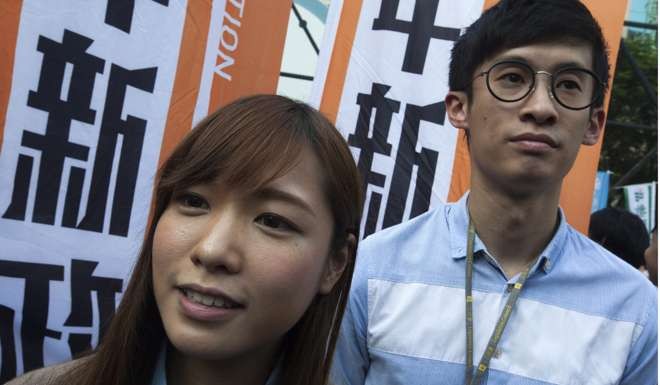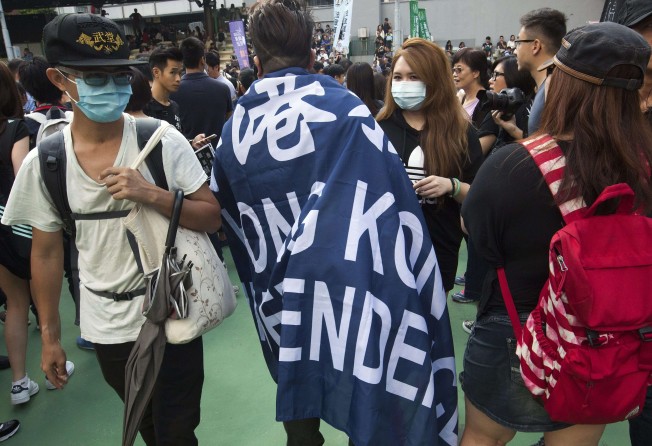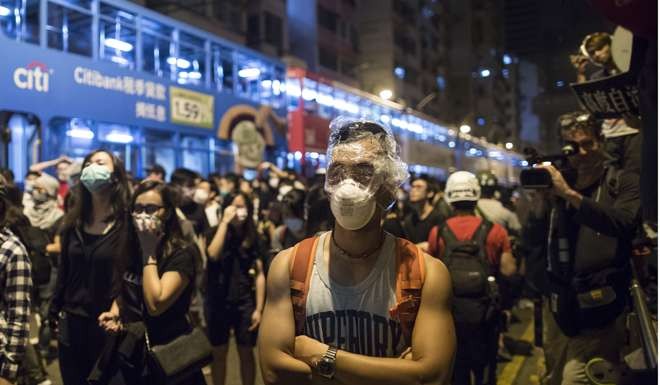
With its latest intervention in Hong Kong, Beijing wins the battle but is losing the war
Gary Cheung says the NPC should be sparing in the use of its power to interpret the Basic Law, or it risks further alienating the city’s young people

Hongkongers’ fears about another interpretation of the Basic Law by the National People’s Congress Standing Committee came true last Monday. The ruling can certainly kick out Youngspiration lawmakers Baggio Leung Chung-hang and Yau Wai-ching from the legislature, but Beijing is likely to lose more ground in its battle to win the hearts and minds of Hong Kong people.
Mainland officials are right in saying the nation’s top legislative body is empowered to interpret the Basic Law. But what the Standing Committee did went beyond interpreting Article 104; it effectively interpreted the Oaths and Declarations Ordinance, the local legislation to implement the Basic Law provision requiring lawmakers to swear to uphold the Basic Law and swear allegiance to Hong Kong as part of the People’s Republic of China.
The ordinance states that any person “who declines or neglects to take an oath duly requested” shall vacate or be disqualified from office. It already spells out the consequences of failing to comply with the law. But the Standing Committee ruling went further: “An oath taker who intentionally reads out words which do not accord with the wording of the oath prescribed by law, or takes the oath in a manner which is not sincere or not solemn, shall be treated as declining to take the oath.” By doing so, it effectively expands the contents of a piece of local legislation.

Beijing’s decision to interpret the Basic Law indicated its distrust in Hong Kong’s courts, which may not hand down the judgment it favours. But, in fact, Mr Justice Michael Hartmann ruled in a 2004 case that if someone takes the oath in a manner that is inconsistent with the ordinance, thereby altering the substance of the oath, that would be in breach of Article 104 of the Basic Law and therefore would have no legal effect.
It is a legitimate expectation that Beijing should exercise self-restraint and use the power to interpret the Basic Law sparingly
NPC Basic Law Committee chairman Li Fei noted last week that the Standing Committee enjoyed the “comprehensive and ultimate power” to interpret the Basic Law. Such authority should not be questioned, he said.
It is true that, after the handover, the Standing Committee can do whatever it likes. But it is a legitimate expectation that Beijing should exercise self-restraint and use the power to interpret the Basic Law sparingly. “One country, two systems” is the product of a political compromise made by Beijing, which recognised in the early 1980s that it would be a failure if the communist system was applied to Hong Kong after 1997.
In an article published in September last year, former chief justice Andrew Li Kwok-nang wrote that the right of abode episode in 1999 had led to a consensus in Hong Kong and, he believed, also in Beijing that apart from an interpretation of an excluded provision made on a judicial reference by the court, the Standing Committee’s power to interpret should only be exercised in the “most exceptional circumstances”. Li was one of the five Court of Final Appeal judges who handed down the landmark judgment in the right of abode case in 1999, which was subsequently overridden by the Standing Committee.

I have been a critic of the two localists since they used derogatory language to insult China during the swearing-in ceremony on October 12. Their childish acts unnecessarily provoked Beijing, which never hesitates to get tough on Hong Kong independence, to intervene in the oath-taking saga.
Mainland officials and the pro-establishment camp are adamant that the interpretation will restore order in the Legislative Council and Hong Kong. But the alienation among the city’s young people towards the mainland and the growing appeal of separatism for them will not vanish with the ouster of the two localists. Instead, the interpretation will only make it more difficult for Beijing to win the hearts and minds of young people and we can expect more radical protests in the years ahead.
Gary Cheung is the Post’s political editor